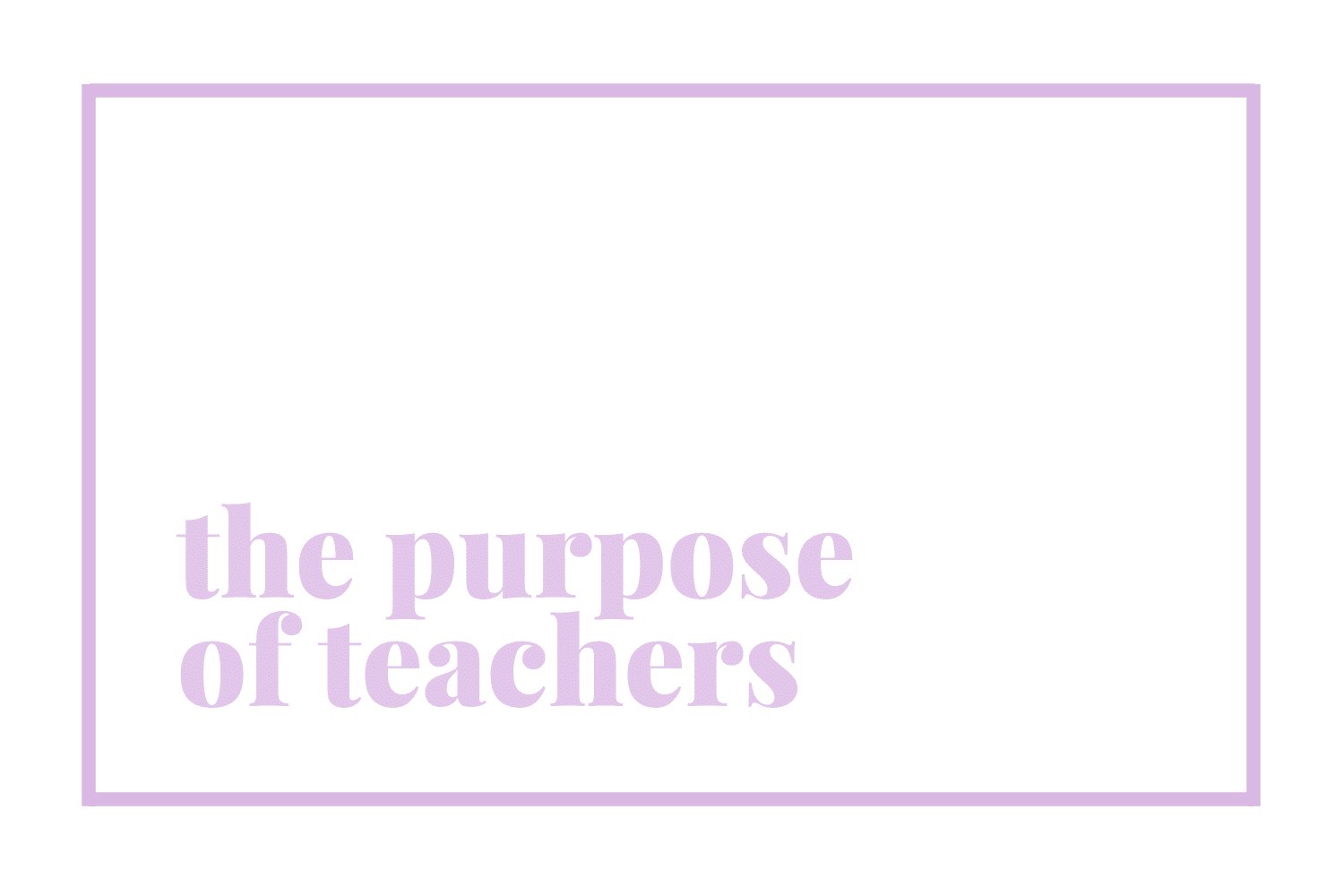
The Way
In a School for tomorrow, we want to influence a research-driven community of inquiry and practice to find a way to educate students to learn the character, competency and wellness required to thrive in our world. This community needs to cultivate a growth mindset, empower learners, and personalise learning so that all can learn the self-awareness of knowing themselves through asking: who am I?
In a School for tomorrow. we want to influence a research-driven community of inquiry and practice to find a way to educate students to learn the character, competency and wellness required to thrive in our world. This community needs to cultivate a growth mindset, empower learners, and personalise learning so that all can learn the self-awareness of knowing themselves through asking: who am I?

THE WHOLE WORK OF A SCHOOL
Character, competency and wellness is the whole work of a School for tomorrow. We need a model of education to understand this whole work of a school.
A coherent model of character education describes how learning occurs within a community of inquiry and practice that is dedicated to the attainment of a clear set of desired graduate outcomes based on 21C civic, performance, and moral character competencies. The operation of such an education in a school can be best understood through a model that situates broad theory within specific learning contexts, design principles and experiences, as well as the exemplary character practice that occurs in them. We believe that a model for an education describes how an education for character might operate in any school. The success of such a model will rest on how well the learning in both theory and practice grows the whole person, their competencies, and wellness.
A competency is the capacity of students to demonstrate how they have grown in an educational process that asks them deliberately and simultaneously to know, to do, to be, and to learn. Character competency is the cultivation and demonstration of those strengths, qualities, and outcomes that are aligned with the values, dispositions, and actions that are associated with civic character, performance character, and moral character: a sense of belonging developed in response to their meeting civic obligations, the fulfilment of potential through the increasing attainment of performance standards, and the capacity to reflect on what is good and right for them to do in their lives, especially in the light of their ongoing moral challenges.
Wellness is how we experience health and happiness in the world. Our wellness (or how well we feel) is influenced by our health – physical, psychological, emotional, and spiritual, our satisfaction with the lives we are leading, and the sense of purpose and connectedness we have. Our character is directly affected by our wellness; how well we are is so very important to how we live our lives and who we are becoming through all of the social relationships and educational processes, the journeys towards character we experience on The Pathway to Excellence.
We believe that it is important to understand how what we do individually in an education for character, competency and wellness can be situated within a model of what we do collectively. What educators think about character matters. How teachers think and feel about character and its relationship to their educational purpose shapes and directs the development, attainment, and measurement of 21C civic, performance, and moral character competencies and the expression of these in a set of desired graduate outcomes in a school. How we think about our practice in relation to this model and how we connect this practice to the context, design, and experiences of learning for character, competency and wellness across all aspects of a school helps us to locate and assess our work.
Nonetheless, a model around which shared understanding and, eventually, a community of inquiry and practice might be built, is both desirable and possible. This model must show how character education occurs in every part of the school, is built through relationship, refined through specific pedagogies, and propelled by the culture of the school. An education for 21C character, competency and wellness must be built according to design principles that encourage educators to plan, share, coach, measure, listen for, live, grow, and defend it. Through a blend of explicit and implicit, deliberate and spontaneous learning, it must seek above all to grow the character of the whole person.
“We will continue to educate for the realisation of maximum human potential ... The spirit of endurance will continue to be nurtured, despite much of society’s preoccupation with the instant and the short-term. We will nurture the courage to stand up and speak out and take action.”
Julie Gillick
THE CHARACTER OF THE COMMUNITY
The things we call ‘character’ come not from a single voice but from the voices of many. The character of character is ultimately best defined by the ethos of a community. We believe that the values, ethos, and associated cultures of a school community are essential for its sense of identity and drive the development of its maturity as a school of character. The strategy by which it goes about selecting and working towards its preferred future is likewise very important in helping that school to be the best version of itself that it can possibly become. Evidence of learning within a community of inquiry and practice is also an essential component of a successful school. Finally, if character is the whole work of a school, we believe that when it comes to the shaping of the school’s purpose, nothing is more critical to a school’s understanding of its purpose than its conception and experience in all respects of its fundamental preferred outcomes for the character of its graduates, the virtues in which this is displayed, and the competencies that surround this whole understanding: what the students know, can do, feel, believe and are disposed towards. In other words, it is when the quality and consistency of an education for character, competency and wellness drives the attainment of the desired graduate outcomes of a school that we might reasonably consider it to be a school of character.
We believe that definitions of character, competency and wellness should be deliberately designed to be inclusive, allowing for as many as possible to situate their beliefs within a broad community of practice. In other words, while there may be some common ground on what character may or may not be, it is up to individual communities and their members to identify those specific words that genuinely speak to them and, therefore, have most meaning in the process of education of their children. Communities may choose to adopt a particular framework of ideas that they import into this vocabulary, but they do not need to do this, per se. Character comes from within the heart of a community in our contemporary world; it must be modelled and exemplified by leaders, but it is not handed down from on high. A great school has many rationales for an education for character, competency and wellness. We believe that a healthy school community should encourage a full range of views on the purpose of an education that reflect more closely the diversity of views held in the societies that these schools serve. Preparing students to be fit for purpose in 21C requires the capacity to see, understand and harness multiple perspectives. Schools, by their nature, which are too singular in outlook promote a type of thinking that seems to be of less relevance to the world to be inhabited by their students. Open mindedness and a capacity to recognise what others see and feel are qualities that need to be embedded in any school that seeks to prepare students to thrive in their world.
THE CHARACTER OF AN EDUCATION FOR CHARACTER COMPETENCY AND WELLNESS
In practice, the call to prepare students to thrive in their world through an education for character, competency and wellness is best answered through the development of a framework for education. We believe that the best starting point for embedding the desired culture of a school of character within everything that it is and does should be this notion of a framework for education. This set of fundamental educational documents should be based on a structure of guiding questions and concepts that integrate the knowledge, skills, character, and learning habits required for an authentic 21C education for character into a series of specific competencies that should influence, inform and instruct the whole learning activity of a school. In seeking to embed such a framework of thinking behind contemporary and future education for our young people, schools should first seek to create the leadership and governance that both understand and nurture the challenge of constructing a compelling narrative that links yesterday to today to tomorrow. This can position them to construct systems and processes that develop the capability of people to derive educational solutions based on predicted future needs for the education of our children. Only then will they be best placed to address the learning at the ‘chalkface’, and, therefore, to build cultures of excellence in learning in communities of inquiry and practice that balance evidence with wisdom in creating better character education.
A curriculum for character learning brings commitment, unity, and alignment to our shared educational endeavour. We believe that what our teachers think, feel, and understand about character shapes the output of the work we do as a school in educating our graduates. Their perspectives of, intentions towards, and understanding of the notion of character deeply influence their responses towards the importance, function, and, most significantly, the purpose of character education so that these become more fully aligned with the mission of the school and the deeper practice of the profession. At the same time, this individual practice must operate within a consistent and evidence-based system of language, curricular intent, and professional interaction that ensures that what is being done in terms of character education brings the greatest benefit to the greatest number of learners. The work of the individual educator, therefore, needs to be situated particularly within an agreed curriculum for character learning that is buoyed by a shared language. Any individual and collective perspectives on character education need to be grounded in evidence.
Measuring character development is about measuring the journey towards servanthood and the acquisition of competence through an education for character. We believe that we can use a model for the acquisition of character competency that traces the journey from ‘me’ to ‘you’ to ‘us’. This can be measured on a developmental continuum that moves from the expression of self-interest, to awareness, to intent, to judgment, to coherence, and finally to competence. We believe that character education is the articulation and application of school’s whole program of education to build capacity in character competency through the development of rigor in character practice, expertise in character apprenticeship, depth in character leadership, and richness in character capital.
We can measure the success of a school’s overall whole program of character education according to six key markers that show us the critical components for success in character education: resilience of consensus around ethos, effective and engaging communication and reporting, robustness and consistency of standards, tangible outcomes for students and programs that meet expectations, strategic clarity and connection, and a focused and committed community of inquiry and practice. We can measure these markers according to their observable consistency and quality of execution across a school, especially across three dimensions of character learning (contexts, design and experiences).
Ultimately, the character of an excellent education for 21C character and competency in a School for tomorrow. must be intentional, holistic, and measurable in its impact. We believe that schools should apply their beliefs about an education for civic, performance, and moral character in a deliberate, targeted, and intentional fashion. And when we implement a well-designed education, we must measure what we do along the way. We need to identify and measure the impact of our work on the character, competencies, and graduate outcomes of students, and the efficacy of our character education program in respect of these, as we would with any other aspect of our curriculum.
Thus, an education for character, competency and wellness should be the result of a designed landscape of learning that flows from the heart of a school’s ethos into every place of learning. It’s too important to be anything else, especially when we consider that it occurs in everything we do in schools. It cannot simply be contained in a box of a specific program or activity, even if this activity is important as a beacon for a community in terms of expectations and the lived experiences of character education. We don’t do character for 40 minutes a week or two weeks a year. We do it all the time – the journey towards character on The Pathway to Excellence lasts a lifetime.

THE WHOLE WORK OF A SCHOOL
Character is the whole work of a school. How we think about our character practice and connect this to the context, design, and experiences of character learning across all aspects of a school helps us to locate and assess our work through a coherent model of character education. This model describes how learning occurs within a community of inquiry and practice that is dedicated to the attainment of a clear set of desired graduate outcomes based on 21C civic, performance, and moral character competencies...

THE PURPOSE OF TEACHERS
What educators think about character matters. How teachers think and feel about character and its relationship to their educational purpose shapes and directs the development, attainment, and measurement of 21C civic, performance, and moral character competencies and the expression of these in a set of desired graduate outcomes in a school...

A MODEL FOR CHARACTER EDUCATION
We need a model of character education to understand the whole work of a school. We believe that it is important to understand how, what we do individually in character education, can be situated within a model of what we do collectively. The operation of character education in a school can be best understood through a model that situates broad theory within specific learning contexts, design principles and experiences, as well as the exemplary character practice that occurs in them...

THE THINGS WE CALL 'CHARACTER'
The things we call ‘character’ come not from a single voice but from the voices of many. We believe that definitions of both character and character competency should be deliberately designed to be inclusive, allowing for as many as possible to situate their beliefs within a broad community of practice...

MEASURING CHARACTER DEVELOPMENT AND CHARACTER EDUCATION
Measuring character development is about measuring the journey towards servanthood and the acquisition of competence through an education for character. We believe that we can use a model for the acquisition of character competency that traces the journey from ‘me’ to ‘you’ to ‘us’. A competency is the capacity of students to demonstrate how they have grown in an educational process that asks them deliberately and simultaneously to know, to do, to be, and to learn...

THE RATIONALES FOR CHARACTER EDUCATION
A great school has many rationales for character education. We believe that a healthy school community should encourage a full range of views on the purpose of an education for good character so as to reflect more closely the diversity of views held in the societies that these schools serve. Preparing students to be fit for purpose in 21C requires the capacity to see, understand, and harness multiple perspectives...

CHARACTER LEARNING IN THEORY AND PRACTICE
Character learning in theory and practice must grow the whole person. We believe that our model for character education describes how an education for character might operate in any school. Individual schools may well choose to develop their own models or to tailor this particular model to suit their own contexts. Nonetheless, a model around which shared understanding and, eventually, a community of inquiry and practice might be built, is both desirable and possible...

A CURRICULUM FOR CHARACTER LEARNING
A curriculum for character learning brings commitment, unity, and alignment to our shared educational endeavour. We believe that what our teachers think, feel, and understand about character shapes the output of the work we might do as a school in educating our graduates. Their perspectives of, intentions towards, and understanding of the notion of character deeply influence their responses towards the importance, function, and, most significantly, the purpose of character education so that these become more fully aligned with the mission of the school and the deeper practice of the profession...